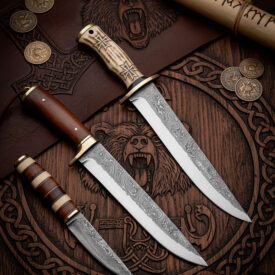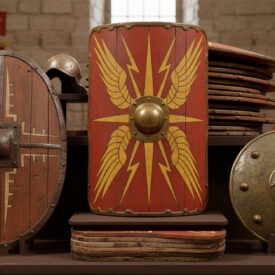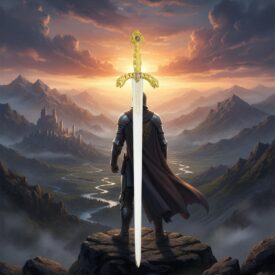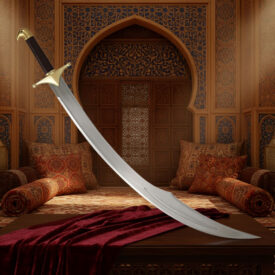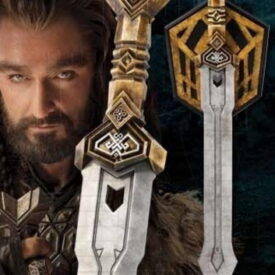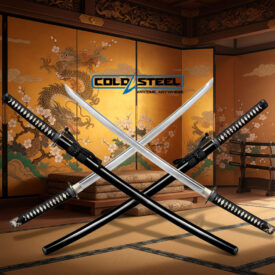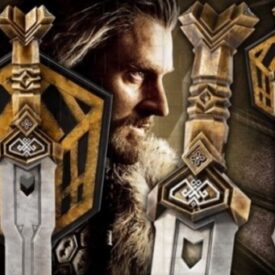What did Genghis Khan’s sword conceal beyond steel? Imagine the trail of dust left by a galloping mounted horde, the gleam of a blade in the sun, and the name of a man who becomes a legend: Temüjin, forever known as Genghis Khan. The sword of Genghis Khan was not merely a cutting instrument; it was an emblem of authority, a catalyst of terror, and, in many accounts, the piece that accompanied a conqueror in the construction of the most vast continental empire of the Middle Ages.
This article brings together history, metallurgical technique, military tactics, and the material and symbolic legacy of the sword attributed to the great khan. You will learn when and how this weapon was integrated into the Mongol campaigns, what we know about its materials and forging, how it influenced the psychology of war, and what modern replicas tell us about the lost art of its blacksmiths.
Essential Chronology: Milestones of Temüjin and his Sword
- 1162: Birth of Temüjin on the slopes of Burkhan Khaldun; his early years forge his nomadic and warrior character.
- 1180–1200: Long tribal battles and unification processes in the steppes; weapons, including the saber, become symbols of power.
- 1206: Congress at Khurultai; Temüjin is proclaimed Genghis Khan and his official banner and weapons consolidate his authority.
- 1210–1220: Expansion to the West and South: Turkestan, Transoxiana, and Persia; the sword appears both in combat and in exemplary executions to sow fear.
- 1227: Death of Genghis Khan in campaign; the figure of his sword enters legend, between history and later narratives.
This chronology offers anchoring points to understand how the sword accompanied political and military processes, and how its meaning was constructed beyond its immediate use in battle.
Military and Social Context: Why the Sword Mattered
On the steppe, mobility was the priority. The weapon that worked best was the compound bow mounted on horseback; even so, the sword maintained a crucial role in close combat and as a symbol of command. The sword of Genghis Khan represented that duality: tactical utility and projection of power.
The 13th-century campaigns combined long-range archery with cavalry charges and maneuvers. When the enveloping tactic led to hand-to-hand combat, the sword decided individual encounters or control tasks over subjugated cities.
The Sword as Weapon and Symbol
The leader’s blade not only cut; it spoke. Executing an enemy leader or displaying a captured sword served to impose obedience. The stories surrounding Genghis Khan, both real and mythologized, underscore that the sword could be both an instrument and an emblem of his authority.
Forging and Materials: The Mystery of Crucible Steel
Among the most interesting findings is the historical reference to the use of advanced forging techniques to produce crucible steel. This technique, with origins traceable to ancient India, consisted of melting and purifying iron and carbon in closed receptacles to obtain a more homogeneous and resistant steel.
Although the practicality of this process on the steppe may seem limited, the Mongols relied on artisans from conquered regions —North China, Central Asia, Persia— who contributed knowledge and mobile or semi-permanent workshops. The result was a blade capable of maintaining an edge without sacrificing flexibility.
What do we know about the blade?
- Shape: Probably curved or slightly recurved to facilitate cuts from horseback.
- Raw material: Steel and iron, with local alloys and regional forging techniques.
- Handling: Design for horseback combat: balance between lightness and forcefulness.
Precise technical data on Genghis Khan’s personal sword are scarce and, in many cases, blend history and myth. Even so, metallurgical knowledge in Asian regions allowed for the production of effective and durable sabers.
Mongol Tactics and the Role of the Sword in Battle
Mongol victories were based on mobility, discipline, terrain reconnaissance, and an efficient chain of command. The sword was the tactical complement: when horse archers had broken enemy formations, the saber charge closed the combat.
The organization into arban, jaghun, mingghan, and tumen allowed coordinated maneuvers that could fragment an adversary and isolate groups for rapid destruction. In this process, the sword served to finish off victories and control prisoners.
Comparative Table of Tactics
| Aspect | Mongols | Other Empires (e.g., European, Muslim) |
|---|---|---|
| Mobility | Very high: light cavalry and horse archers | Lower: heavier and less maneuverable cavalry |
| Discipline | Strict: obedience to the leader and teamwork | More individualistic: pursuit of personal honor |
| Battle Tactics | Feigned retreat and coordinated long-range attacks | More direct and hand-to-hand combat |
| Siege Warfare | Captured engineers and detachable machines | Less systematized and more traditional |
| Logistics | Fast: movement of light equipment | Slower: dependent on heavy equipment |
| War Psychology | Psychological warfare and deliberate terror | Less organized in that aspect |
- Mobility
-
- Mongols: Cavalry and mounted archery dominating distant battle.
- Others: Relic of heavy cavalry and fighting in closed formations.
The Psychology of the Sword: Terror, Order, and Legend
Genghis Khan and his generals used calculated violence to achieve strategic effects: exemplary massacres, deportations, and the destruction of resisting cities. The sword, by its visual and ritual presence, reinforced this message.
Displaying an enemy’s sword or the khan’s own during ceremonies and executions elevated its symbolic status. The legend of an almost mythical sword —in some modern accounts mixed with fiction— fueled the leader’s aura and facilitated the surrender of populations that preferred to submit rather than face annihilation.
Multinational Craftsmanship and the Transmission of Techniques
The Mongols did not invent all the techniques they used; they adopted them. Through networks of conquest and forced diplomacy, they incorporated blacksmiths and artisans from Persia, China, and other regions who contributed knowledge in forging, tempering, and decorating scabbards and hilts.
This explains why some Mongol blades show characteristics shared with Persian shamshirs, Chinese daos, or Turkish implements. The sword of a great chieftain was often a compendium of regional knowledge, assembled into a symbolic piece.
Elements of the Hilt and Scabbard
Details of the pommel, guard, and scabbard indicate origin, influence, and function. Scabbards could be simple or richly decorated depending on the wearer’s position. In steppe practice, functionality almost always took precedence, but command pieces received status adornments.
Blade Types and Comparison Between Contemporary Models
| Type | Blade Length (approx.) | Era | Tactical Use |
|---|---|---|---|
| Mongol Saber (type) | 60–75 cm | 12th–13th Centuries | Cuts from horseback and close-range combat |
| Persian Shamshir | 60–85 cm | 11th–17th Centuries | Deep and fast cuts, excellent for cavalry |
| Chinese Dao | 55–70 cm | 9th–14th Centuries | Versatile, cuts and stabs, used both mounted and on foot |
| European Sword (arming) | 70–90 cm | 11th–15th–16th Centuries | Thrust and cut in formations, less curved |
- Mongol Saber
-
- Length: 60–75 cm
- Era: 12th–13th Centuries
- Use: Cuts from horseback; balance between edge and flexibility
From Historical Reality to Legend: Myths Around Genghis Khan’s Sword
Crossing cultural borders, the figure of the sword blended with later narratives and modern fictions that sometimes turn it into a magical object or an indispensable piece for absolute dominion. There are stories that assign supernatural properties to the sword; many of these stories belong to the realm of epic and popular literature, not historical chronicle.
Separating myth from fact requires critical reading: direct archaeological evidence of Genghis Khan’s personal sword is limited. However, the persistence of its image in collective memory reveals its symbolic weight.
Workshops, Replicas, and Experimental Study
 In recent times, artisans and historical reconstruction specialists have attempted to replicate Mongol blades using traditional and modern forging techniques. These replicas, rather than selling absolute authenticity, serve to test hypotheses about weight, balance, and combat behavior.
In recent times, artisans and historical reconstruction specialists have attempted to replicate Mongol blades using traditional and modern forging techniques. These replicas, rather than selling absolute authenticity, serve to test hypotheses about weight, balance, and combat behavior.
Experimental study provided insights into how a curved blade favors cuts with less effort when moving on horseback and how different heat treatments influence edge retention and blade resilience.
How to Identify a Replica Based on Technical Criteria
- Steel: look for evident heat treatment and welds consistent with traditional techniques.
- Balance: the replica should have a balance point close to the guard for maneuverability.
- Finishes: ornamentation usually indicates a status piece; critical evaluation of materials and assembly techniques is key.
Legacy and Modern Reception
Genghis Khan’s sword continues to inspire collectors, reenactors, and scholars. It is not just a piece of metal: it is a symbol that connects military practices, artisanal knowledge, and political narratives. Its presence in the contemporary imagination speaks to how foundational myths are built around figures who transformed their world.
For the historical reenactment community, understanding the sword involves dialoguing with sources, experiments, and replicas and, above all, respecting the distance between historical fact and literary narrative.
The story of Genghis Khan and his sword reveals the convergence between military technique and political theatricality. Where strategy and logistics failed or were insufficient, the figure of the leader and his weapon served to impose order. Today, by studying these pieces, we learn not only about metals and forging but also about practices of power.
If you are passionate about forging, military history, or reenactment, the sword of Genghis Khan is a doorway to exploring how a simple object can embody an era. Between myth and research, each reconstructed blade is a conversation with the past.

